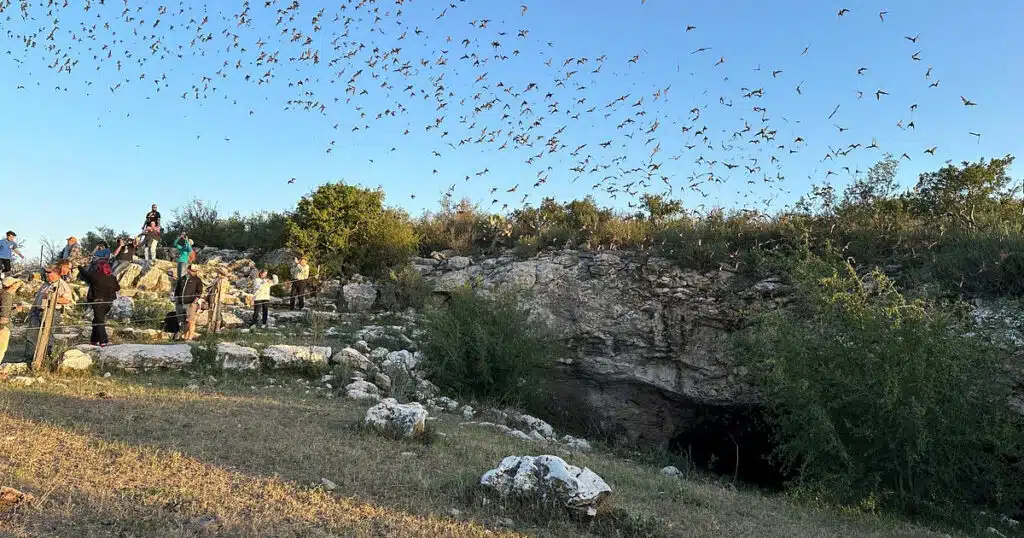
The Gain-of-Function Experiment That Could ‘Eliminate Humans From the Face of the Earth’
A Google search for “Frio Cave” makes the Uvalde County, Texas destination look like a tourists’ dream. One quickly learns that the cave is home to tens of millions of Mexican free-tailed bats, and that you can sometimes witness the flapping horde streaming out of their dark, dank home just before sunset, clouding the sky in a “once in a lifetime experience.”
But Frio Cave has a darker history that visitors websites don’t mention. More than fifty years ago, two humans contracted rabies while spelunking there.
That humans would get infected with rabies while visiting a bat-infested cave isn’t altogether surprising. Bats are a reservoir for the terrifying disease – 99% fatal to humans once symptoms – like hyperactivity, hallucinations, seizures, and fear of water – develop. A simple bite from one of the millions of bats could have transmitted a lyssavirus that triggers rabies. However, in this instance, the spelunkers apparently weren’t bitten. Rather, it seems they caught the virus from the air itself.
A team of scientists subsequently investigated. They found that rabies virus could be transmitted to animals housed in empty cages within the cave, apparently just via the atmosphere itself. Moreover, the virus was isolated from samples collected via air condensation techniques.
The episode raised a disturbing prospect. Had rabies, the deadliest virus for humankind, gone airborne?
To be clear, it had not, at least not in a manner that would result in ultra-contagious, human-to-human spread. The sheer number of rabies-carrying bats in the cave likely transformed it into a “hot-box” of infection. Rabies remains transmitted almost entirely through bites and scratches from infected animals, and it is rapidly inactivated by sunlight and heat. However, for safety, members of the general public are now only allowed to enter Frio Cave on guided tours that remain near the mouth of the cave.
That doesn’t mean that rabies virus couldn’t mutate to become transmitted through the air. It’s an RNA virus, and these are known to have high mutation rates. Indeed, scientists have found “a vast array of antigenic variants of this pathogen in a wide range of animal hosts and geographic locations.”
Moreover, as two Italian scientists wrote in a 2021 article, “Even single amino acid mutations in the proteins of Rabies virus can considerably alter its biological characteristics, for example increasing its pathogenicity and viral spread in humans, thus making the mutated virus a tangible menace for the entire mankind.”
Another possible route for this to occur would be through a “gain-of-function” experiment, in which researchers employ gene-editing to tweak the rabies virus, making it evade current vaccines and endowing it with the ability to spread through the air like measles or influenza. Gain-of-function research has earned increased public scrutiny of late as there’s a small, outside chance it may have produced SARS-CoV-2, the virus that causes Covid-19.
Paul Offit, a professor of pediatrics at the Children’s Hospital of Philadelphia and co-inventor of a rotavirus vaccine, commented on the potential to augment rabies through gain-of-function in a recent Substack post.
“In the absence of an effective vaccine, it could eliminate humans from the face of the earth. The good news is that no one has tried to make rabies virus more contagious. But that doesn’t mean that it’s not possible or that no one would be willing to try.”
This article was originally published by RealClearScience and made available via RealClearWire.



